
So we people, we till now, has created the records multiple times. Similarly, we can create the records, if the application is large. but in real time applications like (Banking), we expect the records in terms of thousands. And creating these thousands of records is not easy for the organization to create. Moreover, in real time clerk (jr.lever employee) cannot update the each and every record to the manager. So they used to upload the records in the form of files(CSV). And they upload these CSV's through the tools like Import wizard and Data Loader
What is meant by the import wizard?
This is a tool to import (or) export the records.
We can use the import wizard
a)If the loading is less than 50000 records.
b)The object should be supported by the Import wizards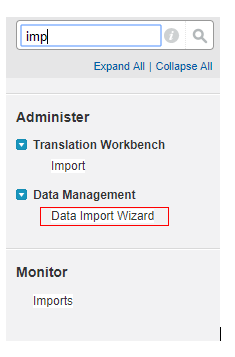
Why this tool is used?
We use this tool to prevent the duplicates and to get the unique records
Note:
We cannot import the Data Import Wizard records via Asses, Cases, Campaigns, Contracts, Documents, opportunities products.
So let implement these in a practical manner.
step - 1 :
In the application, Click on set up and search for the import wizard.
step -2:
Scroll the mouse and click on Launch Wizard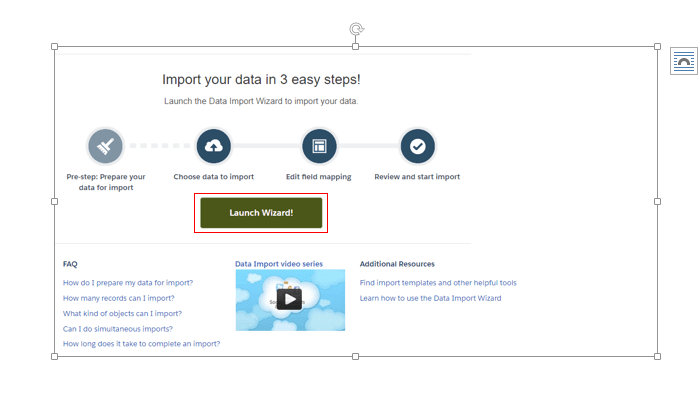
step - 3:
Here, It clearly shows the objects, that it can support. And now, I would like to select the Bank processes. So soon after the selection, it offers you the three options like Adding new records, update existing records, Add new and update existing records. And for instance, I would like to select the Add new records. Fill the details as shown below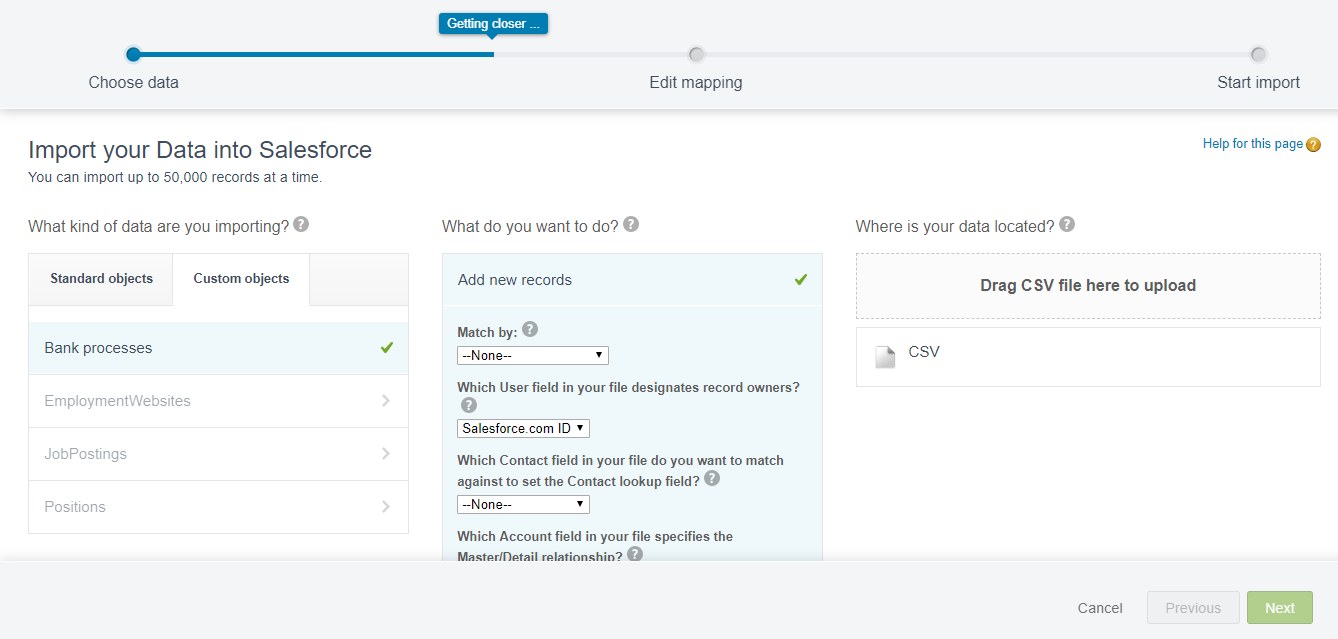
Step- 4 :
Upload the CSV that you have and click on Next.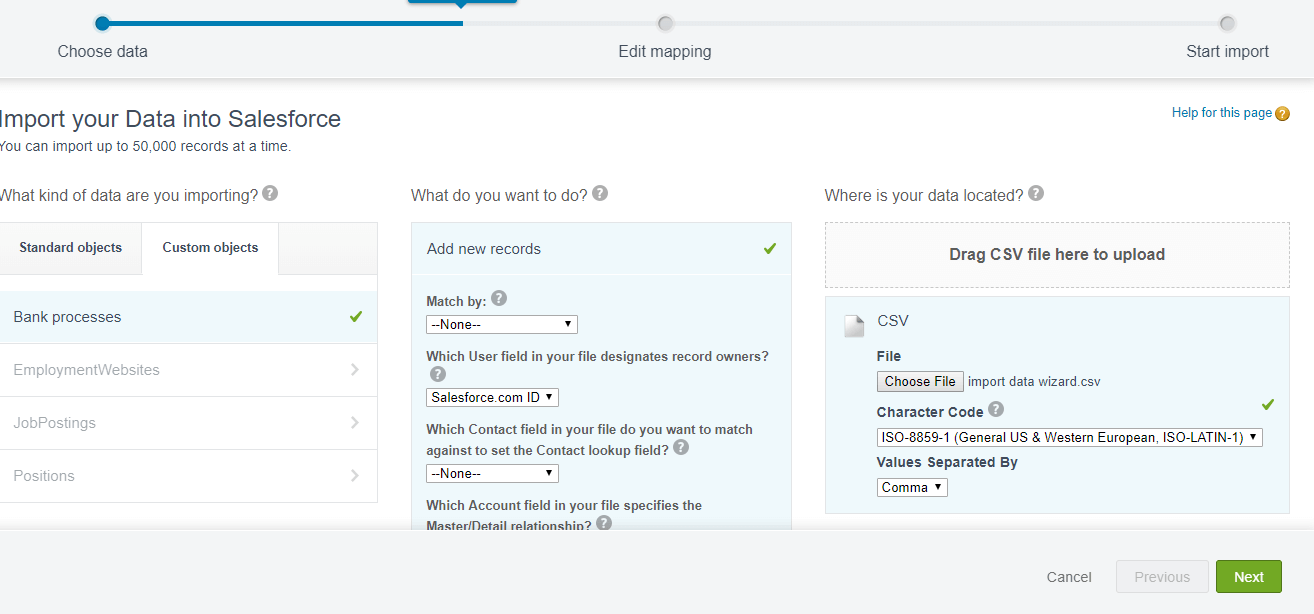
step - 5 :
Its time to map the fields. initially, you will be entering into the following screen.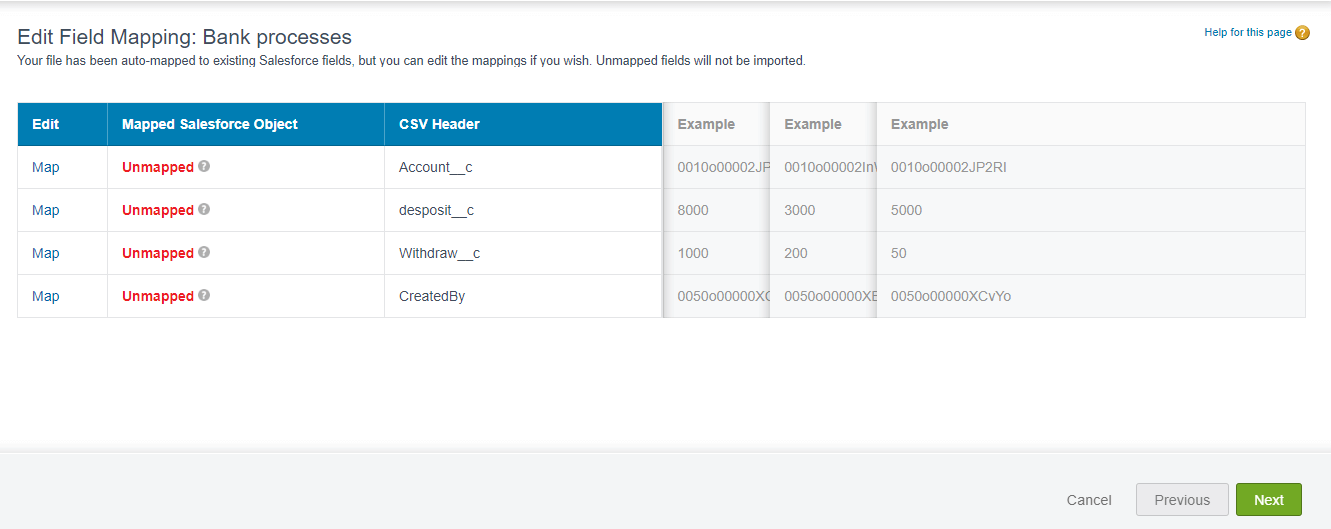
So click on Map and link to the respective fields as shown below and click on Next.
step- 6 :
Then you will be entering into the following screen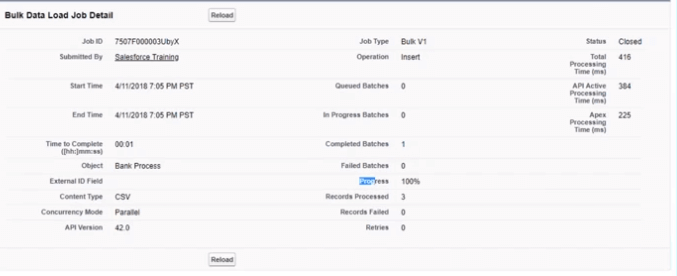
And you can create the records and can check the results.
Data Loader:
It is the client application for the data import (or) export. Here, in CSV format you can find the separate files for success as well as the failures. It is suggested to use data loader if we would like to import 50000 to 5000000 records. And, it facilitates you to schedule the records such as nightly imports. Besides, importing, it facilitates users with data exportation. And if you enable the Data loader, it allows you to load (or) delete a large number of records faster than the default SOAP API. So now, we will see its practical implementation
step - 1 :
In your application (banking), Click on Set up and search for the data loader.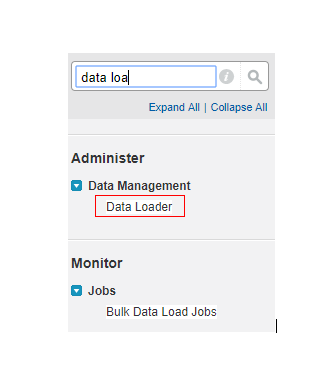
step - 2 :
Select download data loader for windows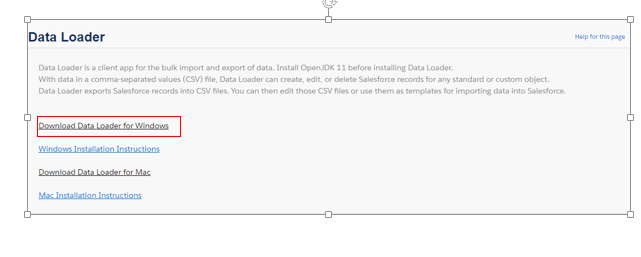
step - 3 :
Once downloaded, run the file in your local system. And soon after downloading you will be entering into the following screen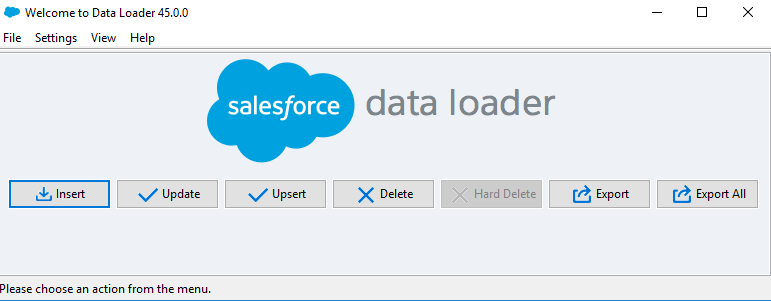
So if you observe the above screenshot, hard delete is not enabled. So to enable this, click on setting and enable use bulk API and click on Ok.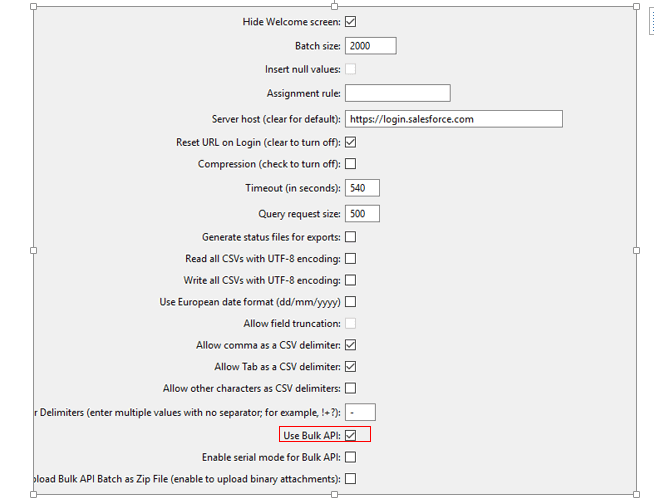
Soon you can see your data loader as shown below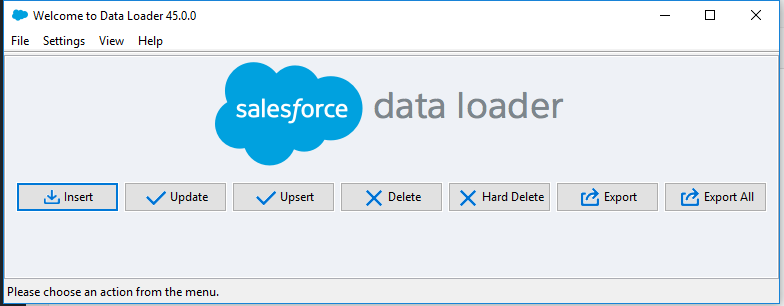
So now, we will start performing the operations with the data loader.
step - 4 :
select Insert.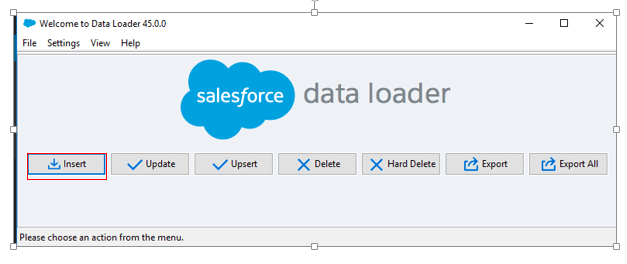
step - 5 :
Click on Login.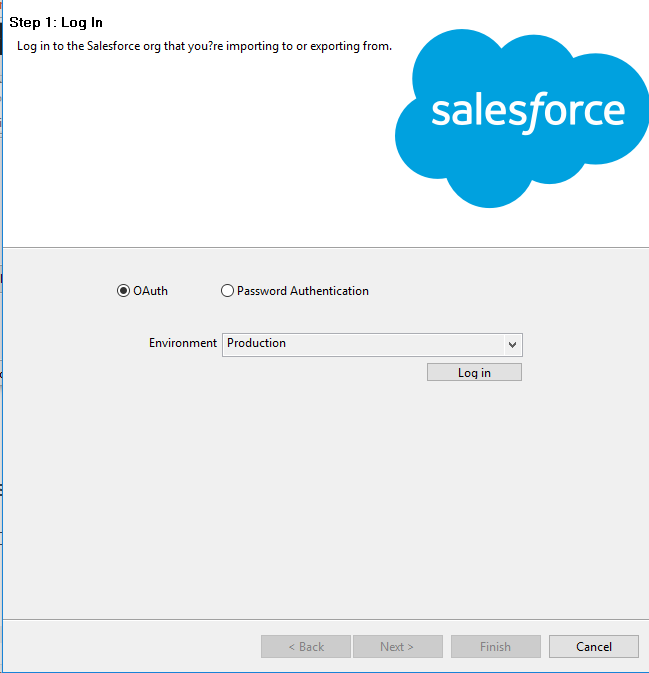
step - 6 :
provide your Salesforce login Id and password and click on login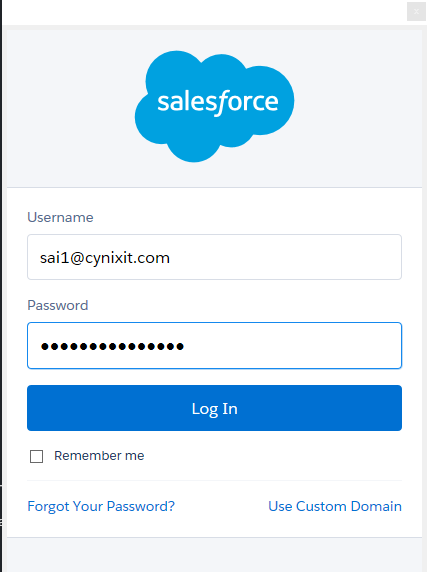
step- 7:
In the following Screenshot, you will be observing login successful. Click on login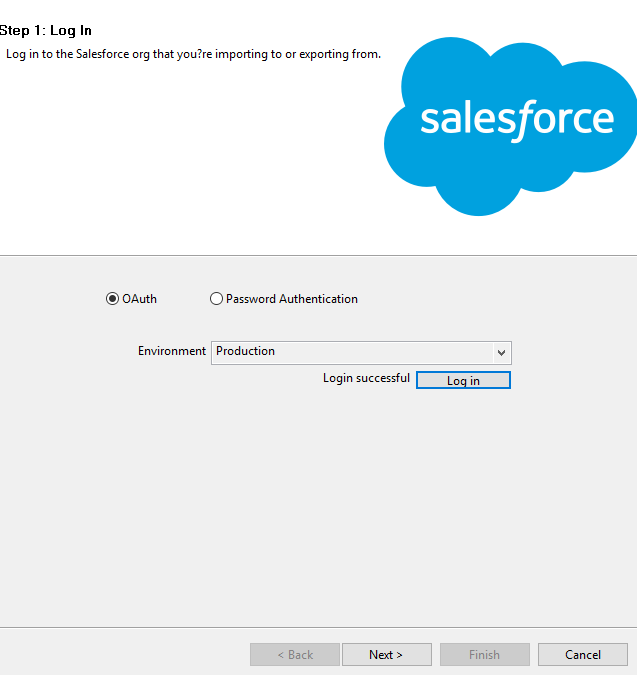
step - 8 :
Once again provide the username and password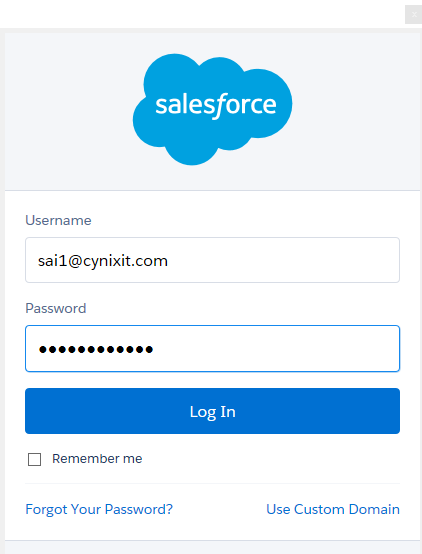
step - 9 :
Click on Next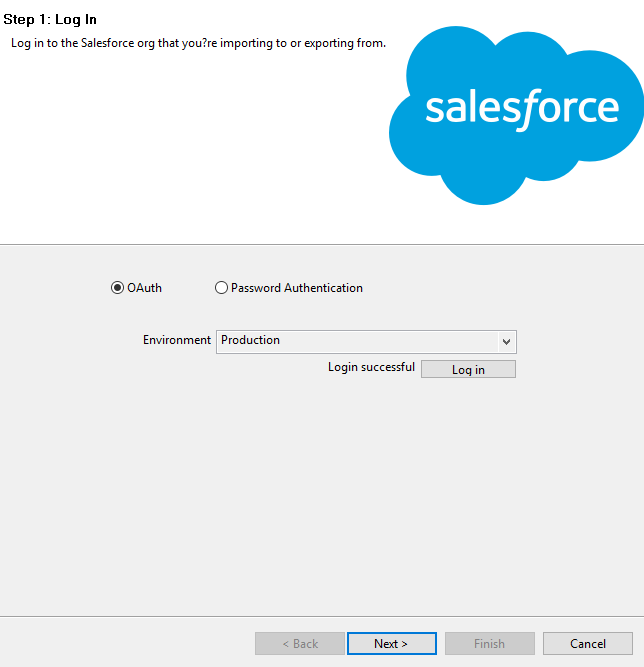
step - 10
Enable for Show all Salesforce object and select any object (Bank process) and finally upload the file that you would like to insert and click Next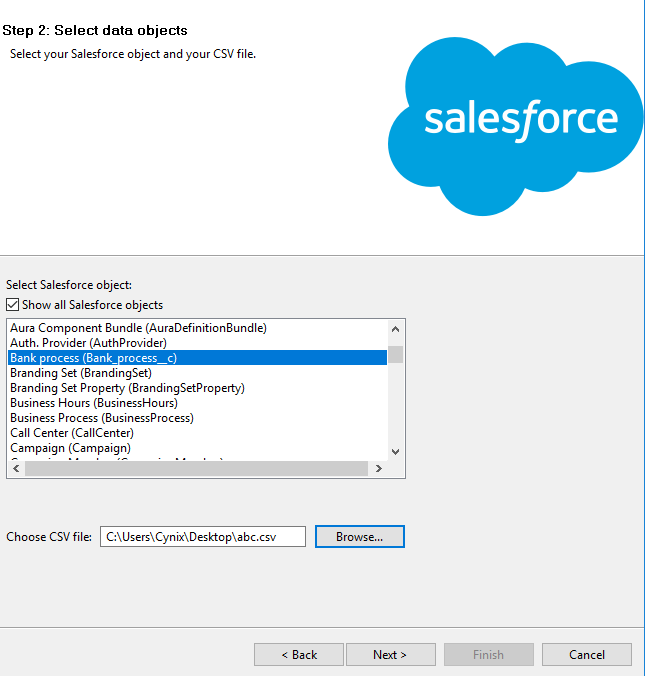
step - 11 :
And you will be seeing the following screen
Since I have updated 3 records in my CSV file, I got the message as shown above, And it is variable
step - 12:
click on OK and then start mapping the objects as shown below. So to do this, Click on Create (or) edit a map and then drag and drop the objects and click on OK.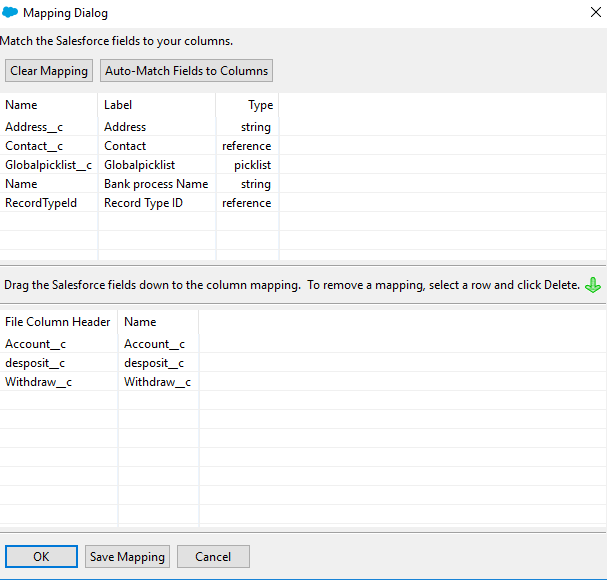
Step - 13:
click on NEXT.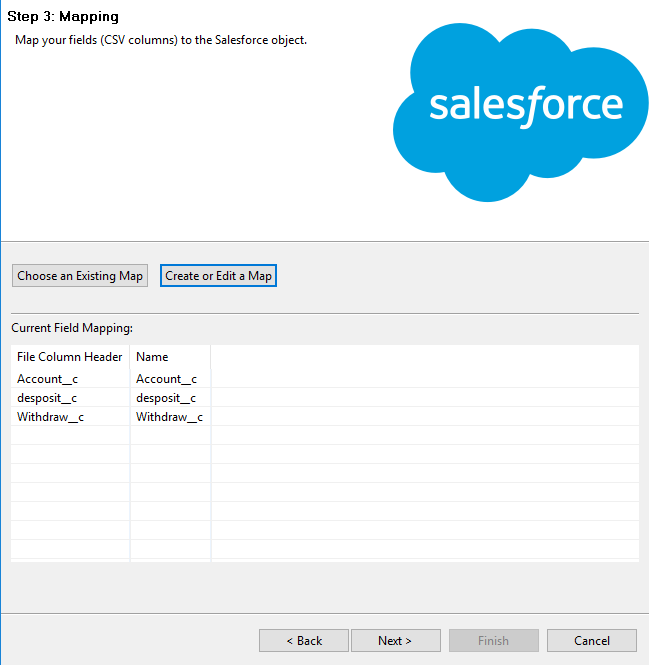
step - 14:
Select the location for the success and the error files and Click on Finish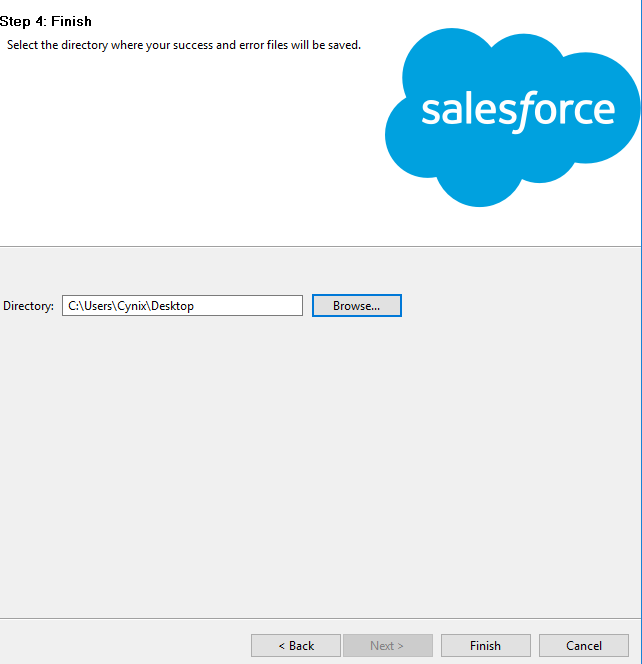
step - 15:
And finally, you will be seeing the following screen!!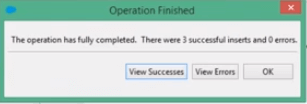
So we have successfully inserted the records in the Objects. So likewise we can perform the other operations as well as shown below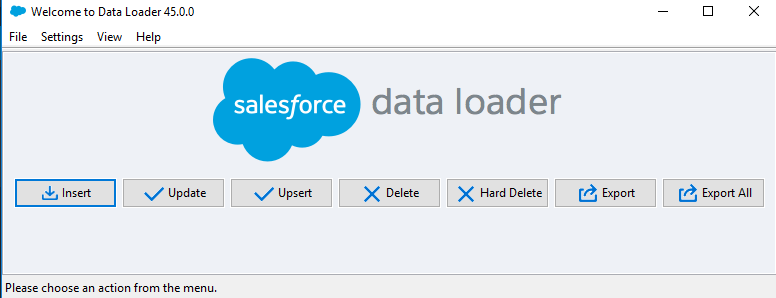
What is the difference between Delete and the Hard delete?
Delete removes the record from the objects and then transfers the files to the recycle bin
What is the difference between Export and Export all?
Export retrieves all the files form the object only, whereas export all retrieves the files from the object as well as from the recycle bin
So I suggest you check all the options of Data Loader. And if you are stuck up anywhere feel free to contact Salesforce Course